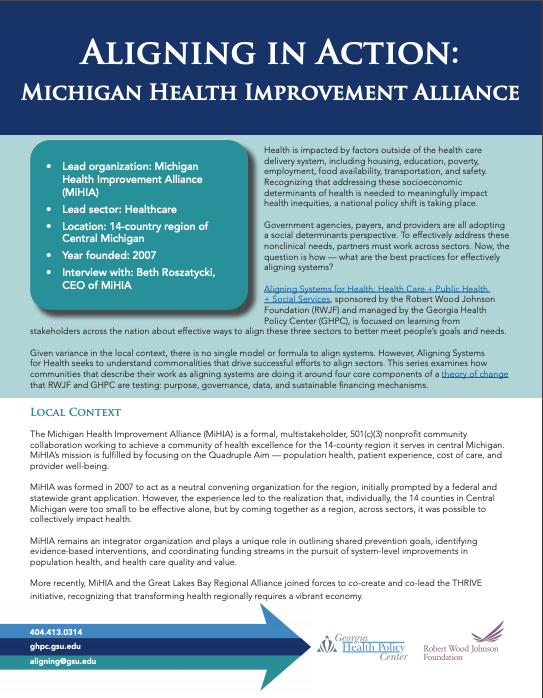
This Aligning in Action case study explores Michigan Health Improvement Alliance’s (MiHIA) best practices for effectively aligning systems to meaningfully impact health inequities in a 14-county region of central Michigan.
The case study examines how communities that describe their work as aligning systems are doing it around four core components of a theory of change that the Robert Wood Johnson Foundation and Georgia Health Policy Center are testing: purpose, governance, data, and sustainable financing mechanisms.
As the backbone organization for regional efforts, MiHIA establishes shared goals and objectives and sets collective targets with partners. MiHIA has a formal structure, including a 23-person board of directors with three-year terms and steering teams for specific initiatives. MiHIA’s online regional Health Dashboard 4.0, a visual analysis tool, helps people in the MiHIA region monitor their communities’ health and well-being, provides resources to improve their health outcomes, and provides a platform for sharing best practices. Operational costs are largely funded by three-year contributions from corporations and affiliate organizations.
Aligning Systems for Health: Health Care + Public Health + Social Services, supported by the Robert Wood Johnson Foundation and managed by the Georgia Health Policy Center, is focused on learning from stakeholders across the nation about effective ways to align these three sectors to better meet people’s goals and needs.

 Back to Resources
Back to Resources